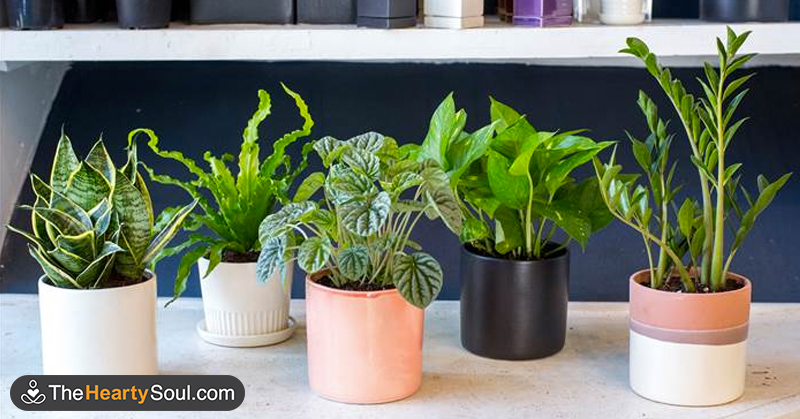Lack of sleep is an epidemic affecting not only Americans but people worldwide. It is estimated that over 70 million Americans chronically have trouble sleeping regularly and are not getting enough shut-eye each night.1
This chronic fatigue is affecting our health in more ways than one. Higher incidences of driving, workplace, and medical accidents are being reported, all with disastrous outcomes. The impact on our long-term health is even greater: The CDC reports that those who don’t get proper sleep are more likely to suffer from hypertension, diabetes, depression, obesity, and cancer.
Mind Just Won’t “Shut Off”

Our fast-paced, stressful lives, poor diets, constant connection to social media and the internet, and environmental toxins are preventing us from “shutting off” at the end of the day so we can rest. With the world continually buzzing around us and demanding our attention, how are we supposed to turn our brain off enough so we can sleep soundly at night time?
It can be tempting to turn to over-the-counter or even prescription sleep meds, but we know how dangerous these drugs can be to our health. There are plenty of natural remedies out there if you’re having trouble sleeping, including sleepy-time teas, herbs, drinks, and even bedtime yoga routines. If none of those seem appealing to you, perhaps this one will: Common household plants have been found to have a positive impact on your health and well-being and may even help you sleep. The best part? All you have to do is remember to water them.
Read More: This is what sleeping on the left side does for our brain, stomach & glymphatic health
Benefits of Household Plants:

Plants are essential to life, removing carbon dioxide from the air and providing us with the oxygen we need to breathe. Growing indoor plants also beautifies your home and helps you enjoy a little bit of nature when you aren’t able to spend time outside. Other benefits of indoor plants include:
- Reduced stress
- Less anxiety
- Cleaner air
- Headache relief
- Mood Boost
- Cold and illness prevention
- Improved brain function
- Improved sleep
Indoor plants have an incredible ability to remove toxins from your environment. Considering most of us spend the majority of our day inside, keeping these plants can have a profound impact on our productivity, health, and vitality.
If you are having trouble sleeping, consider growing one of these five plants in your home to improve the quality of your and your whole family’s sleep.
1. Aloe Vera

You’ve probably used aloe vera in some form or another when you’ve had a bad sunburn, or perhaps you’ve even tried popular aloe vera drinks. Beyond saving your skin after a long day at the beach, aloe can be an incredible sleep-aid to keep on your bedside table. Aloe plants emit large amounts of oxygen at nighttime. This increased oxygen content in the air can help to clear your mind and reduce stress and anxiety, which in turn helps you fall asleep faster and sleep soundly until morning.
2. Jasmine

If you aren’t a morning person and struggle to feel awake and ready to tackle the day, no matter how much sleep you got the night before, then jasmine may be the plant for you. In addition to its pleasant aroma, jasmine as shown to help to reduce anxiety when having trouble sleeping, and the effects even last after waking up in the morning.2
3. Lavender

Lavender oil is one of the most popular essential oils on the market, known for its relaxing nature and antimicrobial properties. In plant form, lavender gives off an incredible scent that has a powerful ability to calm a wired mind and ease even the most stressed-out of persons into a deep slumber. Lavender plants have been tested to show marked improvement in sleep quality and less disturbed sleeps for those with lavender in their bedrooms.3
To thrive, lavender needs lots of sunlight so set it up by a sun-facing window, then bring it closer to your bed (if the window isn’t there already) in the evenings to reap the benefits.
Read More: 21-Year-Old Sentenced To 10 Days in Jail for Oversleeping, Missing His Jury Duty
4. English Ivy

NASA has listed English ivy as the most powerful air-cleansing plant you can have in your home. It can reduce airborne mold by up to 94%, helping to improve the breathing ability of anyone who suffers from asthma or other respiratory illnesses. If you or anyone in your family has allergies or asthma, growing this plant in their bedroom and elsewhere in the home can dramatically improve their ability to breathe easily and sleep better at night.
5. Snake Plant

Despite its ominous name, the snake plant is anything but scary. The serpent-like plant is one of the most successful air filters in the natural world (behind English Ivy). They are incredibly easy to grow and add an exotic touch to your home. For easier breathing without all the effort, get your hands on one of these.
Proper sleep is essential for you to thrive, be productive, and fully enjoy your life. Try using these plants to help you beat chronic fatigue and sleep better than you ever have before.
As always, consult your doctor if your inability to sleep persists and before trying any new natural sleep aid alternatives.
Read More: Sweating In Your Sleep? 7 Possible Reasons for Night Sweats
Sources
- “Trouble Sleeping? These House Plants May Help You Sleep Better.” CNET.
Hedy Phillips. June 26, 2024. - “5 plants that could help you sleep better.” Toms Guide. Cynthia Lawrence. January 31, 2023.
- “5 House Plants That Will Help You Sleep, Experts Say.” Best Life Online. Juliana Labianca. June 4, 2024.

